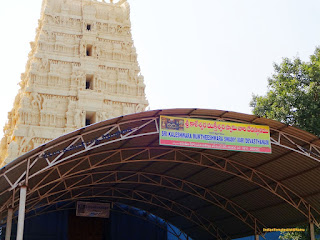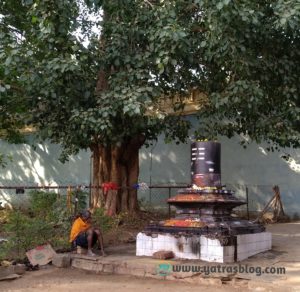Walt Whitman
was born to Walter and Louisa Van Velsor Whitman in Huntington on Long Island
on May 31, 1819. His parents took interest in Quaker principles and ideals.
Whitman was the second of nine children. At the age of four, Whitman’s family
moved from West Hills to Brooklyn. At the age of eleven Whitman left school and
worked as an office boy for two lawyers. Later he worked as an apprentice in a
printing press for the weekly Long Island newspaper “Patriot” edited by Samuel
E.Clements. Later he worked for another printer, Erastus Worthington in Brooklyn.
His family moved back to West Hills but Whitman remained in Brooklyn and took up a job in the office of the Whig weekly newspaper, ” Long Island Star.’ During this time Whitman anonymously published some of his poems in the "New York Mirror". At the age of sixteen in May 1835, Whitman moved to New York to work as a compositor but lost his job when there was a severe fire in the printing press. So, in May 1836 he went to Hempstead, Long Island to join his family. Whitman taught at various schools though he was not satisfied with his teaching profession.
Later he went back to
Huntington, New York to set up his own newspaper “Long Islander” but after ten months
he sold his newspaper publication to E.O.Cromwell. Later he went to work as a teacher at
Southold, New York. During this period Whitman published a series of ten
editorials called “Sun-down Papers-From the Desk of a School Master” in three
newspapers between 1840 and 1841. Whitman moved to New York again to work for
various newspapers like “Brooklyn Eagle” and “Aurora”. He showed interest in Italian
opera and reviewed performances of works by Bellini, Donizetti and Verdi. This
new interest had an impact on his writing of free verse. Throughout 1840s he
contributed fiction and poetry to various periodicals. In 1848 he lost his
position at the Brooklyn Eagle. He tried his hand in various literary genres
like the novel, biography and nonfiction.
In 1850 he decided to become a poet. He wished
to write a distinctly American epic and used free verse with a cadence based on
the Bible. By the end of 1855 he printed the first edition of Leaves of Grass
with his own money. Unlike heroic
characters in traditional epic, in this American epic, lives of common people
are portrayed in prose-like poetic form. It also dealt with the impact of
modern urbanization, scientific advancement and industrial expansion. He used
simple and realistic symbols with multiple meanings. He used rhetorical and
rhythmic style with long flowing lines giving a broad spectrum of American life
and culture.
The first edition has a prose preface of 827
lines. The famous poem “Song of Myself” is included in this first edition. This
first edition gained popularity owing to its commendation from Emerson who
wrote a five-page letter to Whitman praising his poetry. Whitman added this
complimentary quote of Emerson (“I greet you at the beginning of a great
career…”) to his second edition with twenty additional poems in 1856. "The Leaves
of Grass" was revised again 1860. Later he went on adding more poems and
publishing the collection till his death in 1892. Whitman got a very clear
picture of the Civil war from his brother, George who joined the Union army.
Whitman was very much moved by the war scenes. In Washinton D.C. He volunteered
as a nurse in the army hospitals. Later he tried in to get a post in Government
with a letter of recommendation from Emerson.
At last, with the help of William Douglas O’ Connor, a poet and editor
of The Saturday Evening Post, he got a better job as a clerk in Jan 1865 in the
Bureau of Indian Affairs in the Department of the Interior.
During this
time, he published “Drum taps” a poetic description of the war experiences. But
in June 1865 he was fired from his job by the Iowa Senator who found some
objectionable content inn Whitman’s 1860 edition of Leaves of grass. Whitman’s
poet-friend, William Douglas, defended Whitman in his biographical study “The
Good Grey Poet” in Jan 1866. Whitman’s poem “O Captain! My Captain” on the
death of Abraham Lincoln also helped in increasing his popularity. His contact
and interaction with confederate soldiers at Attorney general’s office afforded
him a chance to know more about the war conditions.
In 1866 he prepared a new edition of Leaves of
Grass and published it in 1867. In Feb 1868 with the help of William Michael
Rossetti his poems were published in England. This edition became very much
popular due to complimentary remarks from the writer, Anne Gilchrist. In 1871
another edition of Leaves of Grass was published. In the same year Whitman
published “Democratic Vistas”, a collection of three essays in which he
expressed his views about the role of democracy in establishing a new cultural
foundation for America. In this work Whitman condemned corruption and greed of
the post-civil war materialism that had overtaken the country and advocated the
creative role of literature in shaping the future cultural identity of America.
Whitman
worked in Attorney General’s office till January 1872. He spent much of his
time in 1872 in nursing his mother who was struggling with arthritis. After
suffering from a paralytic stroke in early 1873 he moved to his brother George
Washington Whitman’s house at 431, Stevens Street in Camden, New Jersey. His
mother died in the same year in May. During his stay there he published three
versions of Leaves of Grass. Famous writers like Oscar Wilde and Thomas Eakins
visited him. Whitman bought his own house in 1884 at 328 Mickle Street (now 330
Dr. Martin Luther King Jr. Boulevard) as his brother and sister-in-law moved
away due to business reasons. His neighbour, Mary Oakes Davis, the widow of a
sea captain, served as his house keeper as Whitman was mostly bed-ridden.
During this period, he produced editions of
1876, 1881, and 1889. At the end of 1891 he prepared a final edition of Leaves
of grass (nicknamed as Deathbed edition). Whitman died on March, 1892. Four
days after his death he was buried in his tomb at Harleigh Cemetery in Camden. Whitman
is forever remembered as the first “poet of democracy” and one cannot
understand America without reading Whitman’s leaves of Grass. Andrew Carnegie
rightly called him “the great poet of America”.
*****************************
" I too am not a bit tamed, I too am untranslatable,
I sound my barbaric yawp over the roofs of the world." --- Song of Myself -- Whitman.




















